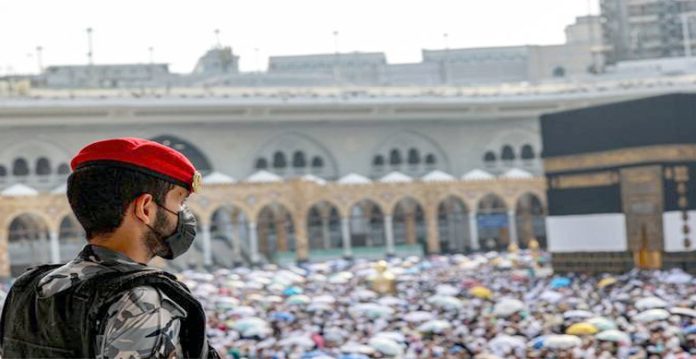Saudi Arabia has reaffirmed its full readiness to serve pilgrims during Hajj 1446H, with over 1.07 million pilgrims already in the Kingdom and a comprehensive suite of advanced digital systems deployed to ensure a safe, seamless, and spiritually fulfilling pilgrimage.
In a joint press conference held on Monday, senior officials from the Ministries of Hajj and Umrah, Health, Transport, and Media outlined strategic and operational plans designed to elevate the pilgrim experience in line with the Kingdom’s Vision 2030.
Minister of Hajj and Umrah Tawfiq Al-Rabiah announced that more than 1.4 million Nusuk smart cards had been issued and over 30 new digital services launched through the Nusuk app, streamlining every aspect of the pilgrim journey—from arrival and permits to real-time guidance and mobility.
Also Read: Sheikh Saleh bin Humaid to Deliver Arafah Sermon During Hajj 2025
“Pilgrim camp allocations in Mina and Arafat are now fully integrated with crowd flow systems,” Al-Rabiah said. “We began preparing for this season as soon as the last one ended. From digital permits to on-ground inspections, our focus is on delivering a safe and efficient pilgrimage.”
Over 37,000 inspections of service providers have already been conducted this month, uncovering 3,400 violations, all of which have been addressed. More than 120 guidance points, including the “Ask Me” service, and 400+ electric carts have been deployed to support the elderly and people with disabilities.
Health Minister Fahad Al-Jalajel confirmed that over 50,000 healthcare services have been provided, with no epidemic cases reported so far. The ministry has expanded clinical capacity by 60%, with three field hospitals, 71 emergency points, 900 ambulances, and 11 air ambulances on standby. Since the start of the season, 140 surgeries, 65 heart catheterizations, and six open-heart operations have been performed.
“Our strategy prioritizes prevention, followed by rapid response,” Al-Jalajel stated. “Our goal is to safeguard every pilgrim’s health and wellbeing.”
Transport Minister Saleh Al-Jasser announced the use of smart monitoring systems, including drones for crowd surveillance and sensor-enabled roads that reduce heat by up to 12°C. The Mashair Train is expected to carry up to 72,000 pilgrims per hour, while the Haramain High-Speed Railway will offer 2 million seats, a 400,000 increase from last year. Additionally, rubberized and cooled road technologies have been expanded by 30% to enhance pilgrim comfort.
Minister of Media Salman Al-Dosari highlighted the Kingdom’s efforts to connect with a global audience, noting Hajj awareness campaigns in 50 languages and media collaborations with broadcasters from over 25 countries. More than 10,000 Wi-Fi access points have been activated across holy sites to ensure pilgrims stay connected.
AI-driven systems will play a central role this year, optimizing crowd control and real-time decision-making, with trained digital teams overseeing implementation.
“Serving pilgrims is a sacred duty we are proud to uphold,” Al-Dosari said. “With the latest technology and dedicated teams, we are committed to making Hajj 1446H an experience of peace, safety, and spiritual enrichment.”
(This story is sourced from a third-party syndicated feed. Raavi Media takes no responsibility or liability of any nature. Raavi Media management/ythisnews.com can alter or delete the content without notice for any reason.)


